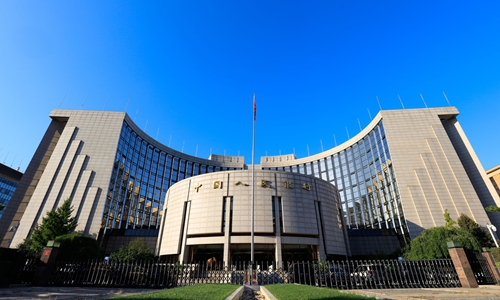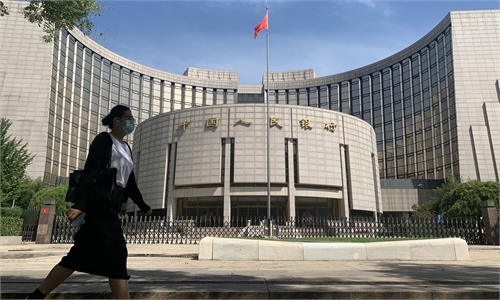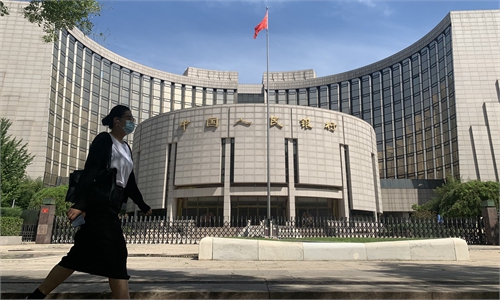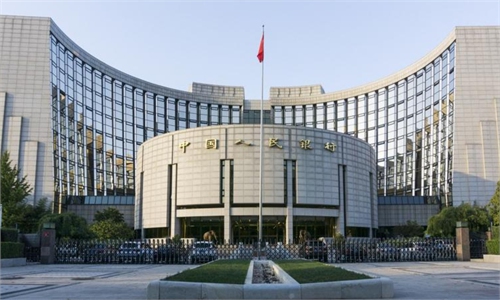PBC to intensify counter-cyclical adjustments to consolidate economic recovery: governor

A view of the PBC's headquarters in Beijing Photo: cnsphoto
The People's Bank of China (PBC), the country's central bank, will adhere to a supportive monetary policy stance, and will intensify counter-cyclical and cross-cyclical adjustments to stabilize expectations and elevate confidence in a bid to help consolidate the economic recovery trend, said PBC Governor Pan Gongsheng.The central bank will implement a prudent monetary policy in a precise and effective manner, strengthen adjustments and boost the implementation of financial policies to produce effects. Meanwhile, efforts will be made to keep liquidity reasonable and ample in the banking system, maintain reasonable growth in credit and lower financing costs for both companies and consumers, Pan said in an interview with China Central Television on Saturday.
Pan said that the central bank will encourage financial institutions to increase credit support for key areas and weak links, and meet reasonable consumer financing needs in a more targeted manner.
Overall, China's financial system is stable, Pan said. Earnestly following the Third Plenary Session of the 20th Central Committee of the Communist Party of China, the bottom line of no systemic financial risk will be safeguarded, the governor stressed.
The Central Financial Work Conference held in October stressed that the financial sector must provide high-quality services for economic and social development. We need to ensure that the financial sector plays an active role in boosting the high-quality development of the real economy, Wan Zhe, an economist and professor at the Belt and Road School of Beijing Normal University, told the Global Times on Sunday.
China will expand the range of participants in the domestic financial market by attracting more overseas institutions and investors, optimizing financial supply and promoting the continuous improvement of the efficiency of resource allocation in the financial market, Wan said.
She said efforts are needed to promote China's financial opening-up in terms of rules, management, standards and other aspects to enhance the international competitiveness of China's financial industry.
Since the second half began, the PBC has ramped up monetary policy as policymakers stressed that the country must remain firmly committed to accomplishing the goals for this year's economic and social development.
On Tuesday, the PBC announced plans to increase the relending quota by 100 billion yuan ($13.96 billion) for the agricultural sector and small enterprises located in 12 provincial-level regions that have been ravaged by floods, including Southwest China's Chongqing Municipality, East China's Fujian and South China's Guangdong provinces.
Analysts said that macro-policies should be intensified in order to achieve the annual GDP growth target of around 5 percent for this year.
Amid the trend of interest rate cuts in major economies, it is expected that the PBC may announce cuts to interest rates or the reserve requirement ratio by the end of 2024, Wen Bin, chief economist at China Minsheng Bank, told the Global Times.
Thanks to favorable factors including a low interest rate environment, stable real estate market and policies to boost consumption, consumers' willingness to spend and borrow will gradually recover, he said.
In addition, policymakers should step up fiscal policies to provide effective asset supply, encourage businesses to increase leverage, and revive enterprises' confidence through further reform and opening-up, according to Wen.



